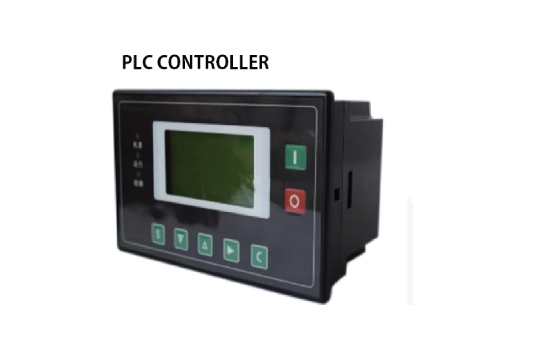-
Call
-
Whatsapp
9825014048
-
Location


PLC Controller
PLC Controller
In a world of industrial automation, accuracy and efficiency are paramount. These characteristics are achieved by simple integration of complex devices and processes, which are usually controlled by a small but indispensable component known as a programmable logic controller (PLC) controller.
PLC controllers serve as a nerve centre in industrial operations, orchestrating tasks with accuracy, reliability and speed . In this comprehensive guide we will dive into the world of PLC controllers, exploring their applications, types, applications, configurations, and applications in modern industrial automation.
A programmable logic controller (PLC) controller is a special type of digital computer designed to control industrial components and devices. It is a versatile machine capable of performing a wide range of tasks, from simple logic tasks to complex automation sequences. PLC controllers are widely used in construction, assembly lines, power plants, wastewater treatment plants, and a variety of technologies that require precise control and automation.
Functions of a PLC Controller
- Input processing: PLC controllers receive signals from sensors, switches, and other input devices, and translate the physical inputs into digital data for processing.
- Logic Functions: perform logic operations such as AND, OR, and NOT to determine the state of different outputs based on the state of the input.
- Sequence control: PLC controllers are ideal in applications where they are predetermined to operate in sequence, ensuring that manufacturing and assembly processes are controlled accurately.
- Data Warehousing: Data is stored and maintained, allowing the collection and analysis of critical information for program management and optimization.
- Communication: PLC controllers facilitate communication between various industrial components such as sensors, actuators, and human-machine interfaces (HMIs).
PLC Controller Types
There are many types of plc controllers, each suited to a specific application:
- Modular PLCs: Modular PLCs allow input/output (I/O) capabilities to be changed by adding or removing modules, making them versatile.
- Compact PLC: Compact PLCs are space-efficient and are typically used in applications with limited installation space.
- Rack-mount PLCs: Rack-mount PLCs are designed to fit standard 19-inch equipment racks, making them suitable for use where space is a concern
- Safety PLC: Safety PLCs are dedicated to ensuring proper operation of devices by monitoring critical systems and initiating safety actions when necessary
PLC Programming
PLC controllers are programmed with special software, usually based on ladder logic, a graphical programming language. Functionality involves a series of logical states and actions to evaluate the performance of a device or process. The program is then downloaded to the PLC controller, where it continues to run.
PLC Controllers
PLC Controllers find applications in various industries, e.g.
- Manufacturing: PLC controllers are widely used on manufacturing lines for tasks such as assembly, inspection and quality control.
- Energy management: They play a key role in controlling and optimizing energy consumption in facilities, resulting in energy efficiency and cost savings.
- Water and Wastewater Treatment: The PLC controllers automate the water treatment system, ensuring efficiency and effectiveness.
- Automotive Industry: In automobile manufacturing, PLC controllers control robotic arms, conveyors, and assembly processes.
- Building Automation: PLC controllers are used in building management systems to control lighting, HVAC, and security systems.
PLC Controllers in the Future
PLC controllers continue to evolve with technological advances. They are becoming more connected through the Internet of Things (IoT) and increasingly integrated into intelligent manufacturing processes, paving the way for automation and efficiency.
PLC controllers are the silent giants of industrial automation, working tirelessly behind the scenes to ensure the accuracy, reliability and efficiency of industrial systems They cannot touch their role in manufacturing, efficiency applications in water purification, automotive manufacturing and construction automation are not excessive.
As technology advances, PLC controllers will continue to be at the forefront of technological innovation, driving automation and productivity to new heights.


FAQ

Frequently Ask Questions
A PLC (Programmable Logic Controller) controller is a digital device used to automate electromechanical processes, such as controlling machinery on factory assembly lines.
PLC controllers receive input signals from sensors or switches, process them using a programmed logic, and then output control signals to actuators or other devices to perform specific tasks.
PLC controllers offer flexibility, reliability, and ease of programming, allowing for precise control over complex processes, reducing downtime, and increasing productivity.

